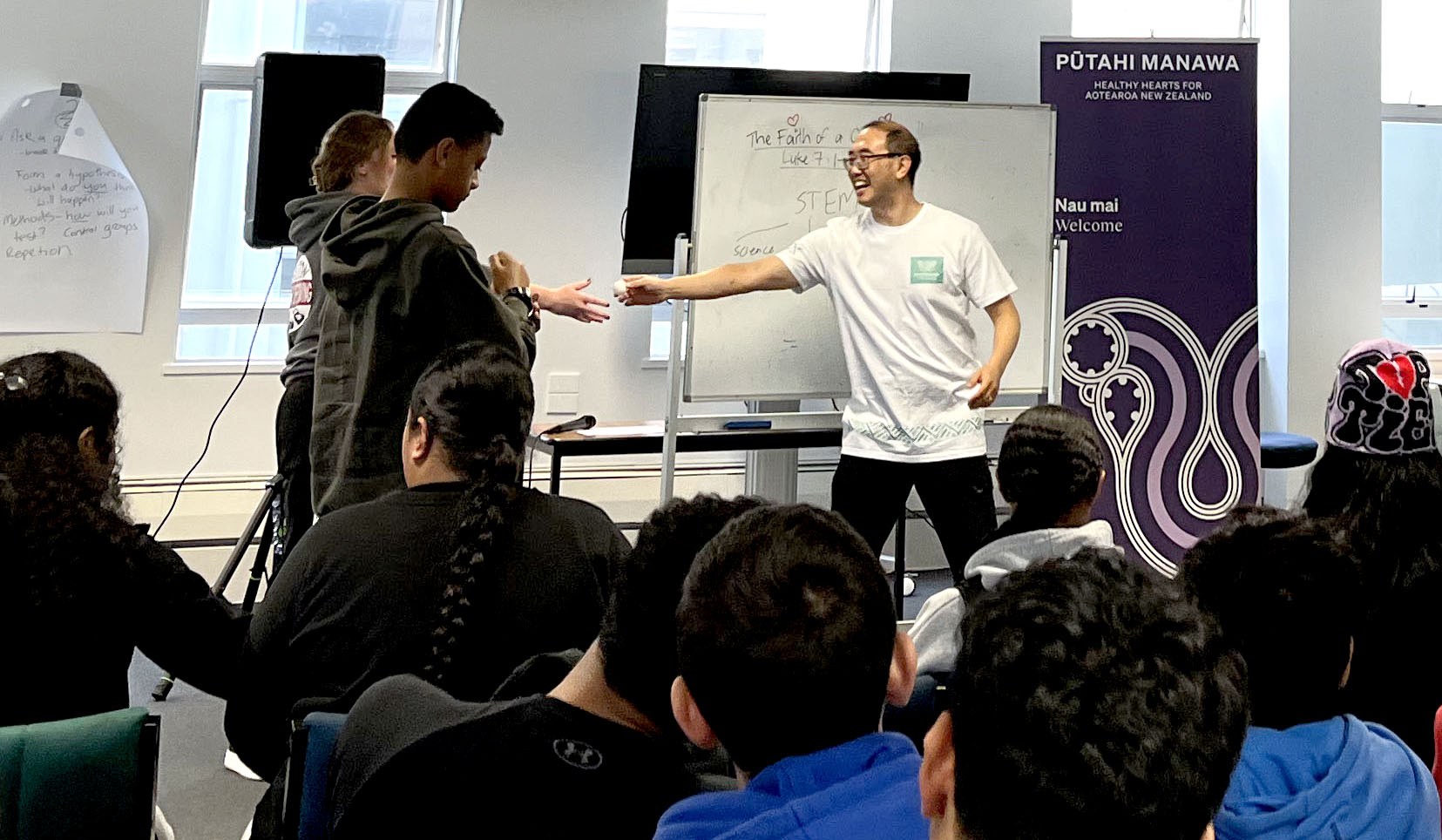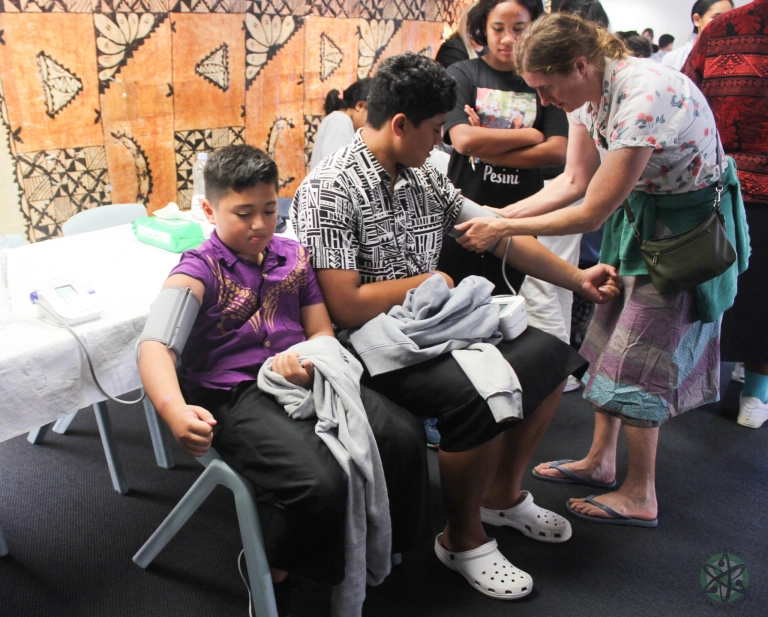Connecting community, growing the next generation of Pasifika researchers
Pūtahi Manawa has one main goal – to close the gap in heart health equity for Māori and Pacific Peoples. It supports research that is very much not business as usual. The projects take a multidisciplinary approach to tackling heart health challenges while putting at the centre those people and communities they hope to help.
Dr Anuj Bhargava, Pūtahi Manawa’s outreach and education lead, connects with these communities to develop education programmes which can lead to long-term relationships and opportunities to collaborate on more impactful methods of research.
“One of the aspects of research is ensuring it’s done in a culturally informed way. You can’t do world-class research if it doesn’t go into the community,” says Dr Bhargava.
Dr Bhargava recognised the mahi already underway at Amanaki STEM Academy (ASA), an after-school programme dedicated to nurturing Pacific youth, prioritising work ethic and normalising excellence in STEM. The programme has been immensely successful, delivering an NCEA pass rate of 94%, on par with prestigious and well-funded private schools. ASA’s work dovetailed nicely with Pūtahi Manawa’s.
“We’ve learned the best way to engage is through the young people. They can make a difference,” he explains. “Rather than us coming in and saying, ‘You need to do this or that,’ we can empower young people with knowledge, so they can make their own decisions and influence their families and communities.”
ASA invited Pūtahi Manawa to engage and, after some initial outreach events, 60 whānau, researchers and students came together for the Heart to Heart Talanoa. This whakawhanaungatanga – building trust, connecting and learning from one another – is a critical first step in all of Pūtahi Manawa’s mahi.
“We spent a year building that relationship,” says Dr Bhargava. “It is not a tick-box exercise. We take the time, but once the relationship is established, it’s there forever.”
One of those researchers at the talanoa was Dr Fiona McBryde, a senior research fellow and senior lecturer at Auckland University’s Faculty of Medical and Health Sciences. Her research initiative, Sweet Pressure, is one of Pūtahi Manawa’s flagship IRM projects. Aiming to prevent and treat high blood pressure and diabetes together, Sweet Pressure’s work is far from traditional research.
"We have the freedom to explore open-ended questions. We can listen to the communities and shift our mahi accordingly.”
That freedom meant that Dr McBryde and the Sweet Pressure team weren’t locked into their programme. They could change their plans to work alongside ASA when the opportunity came up.
Out of the lab and to the kids
Connecting with ASA gave Sweet Pressure the chance to help build the heart health literacy of students while inspiring the next generation of Pacific health researchers. It also enabled Sweet Pressure’s own heart health research projects.
The key, says Dr McBryde, is to co-design the mahi with the students and community.
“It’s moving away from the model where I sit in my ivory tower at the university and write a programme of work,” says Dr McBryde.
“Instead, we’re out in the community, meeting people, patients and whānau, hearing the stories and taking them back to the lab to shape what we’re doing.”

That codesign takes more than a single meeting. “It’s iterative. We have regular meetings, going back and forth, arguing,” she explains.
When research is conducted from the ground up, the outcomes are better suited to the realities of the community it hopes to help.
“The research can then be culturally informed, locally made, and in the context of the availability of resources,” says Dr Bhargava. “It also removes much of the blame and shame attached to the interventions.”
Building health literacy in tupulaga talavou | young people
Sweet Pressure contributes to the programme’s content. It helps frame the STEM activities and learning around health and medicine, and supplies information and specialist equipment. The idea is to influence and equip Pasifika youth to see health research as a career option, ensuring we have the people who can lead this work in the future. The team also supports students to create their own research projects on heart health with their families, with a goal of entering these into a Science Fair.
The relationship with ASA will also have a more immediate impact on the health of the kids, their families and communities.
“By helping these kids, we’re also increasing their health literacy – and they can become a vector for change in their families,” says Dr McBryde.



